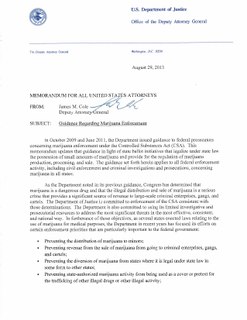 W
WThe history of the United States from 2008 to the present began with the collapse of the housing bubble, which led to the Great Recession, and helped the Democrats win the presidency in 2008 with the election of Barack Obama, the country's first African-American president. The government issued large loans and enacted economic stimulus packages that aimed to improve the economy. Obama's domestic initiatives also included the Patient Protection and Affordable Care Act, which by means of large reforms to the American healthcare system, created a National Health Insurance program. President Obama eventually withdrew combat troops from Iraq, and shifted the country's efforts in the War on Terror to Afghanistan, where a troop surge was initiated in 2009. In 2010, due to continued public discontent with the economic situation, unemployment, and federal spending, Republicans regained control of the House of Representatives and reduced the Democratic majority in the Senate. In 2011, Obama announced that al-Qaeda leader Osama bin Laden was killed by U.S. forces during a covert operation in Pakistan while the Iraq War was declared formally over the same year. The following year Obama was re-elected president. In June 2013, the Supreme Court struck down Section 3 of the Defense of Marriage Act, which resulted in the recognition of legally performed same-sex marriages by the federal government. In 2015, the Court ruled that all states must grant same-sex marriages as well as recognize others performed in different states in Obergefell v. Hodges.
 W
WThe 2008 United States presidential election was the 56th quadrennial presidential election, held on Tuesday, November 4, 2008. The Democratic ticket of Barack Obama, the junior U.S. Senator from Illinois, and Joe Biden, the senior U.S. Senator from Delaware, defeated the Republican ticket of John McCain, the senior Senator from Arizona, and Sarah Palin, the Governor of Alaska. Obama became the first African American to be elected to the presidency, as well as being only the third sitting United States Senator elected president, joining Warren G. Harding and John F. Kennedy.
 W
WThe 2012 United States presidential election was the 57th quadrennial presidential election, held on Tuesday, November 6, 2012. The incumbent Democratic President Barack Obama and his running mate, Vice President Joe Biden, were re-elected to a second and final term. They defeated the Republican ticket of businessman and former Governor Mitt Romney of Massachusetts and Representative Paul Ryan of Wisconsin.
 W
WThe 2016 United States presidential election was the 58th quadrennial presidential election, held on Tuesday, November 8, 2016. The Republican ticket of businessman Donald Trump and Indiana governor Mike Pence defeated the Democratic ticket of former secretary of state Hillary Clinton and U.S. senator from Virginia Tim Kaine. Trump took office as the 45th president, and Pence as the 48th vice president, on January 20, 2017. It was the fifth and most recent presidential election in which the winning candidate lost the popular vote.
 W
WThe 2020 United States presidential election was the 59th quadrennial presidential election, held on Tuesday, November 3. The Democratic ticket of former vice president Joe Biden and incumbent U.S. senator from California Kamala Harris defeated the Republican ticket of incumbent president Donald Trump and vice president Mike Pence. Trump became the first U.S. president since George H. W. Bush in 1992 and the eleventh incumbent in the country's history to lose a bid for a second term. Biden's 51.3% was the largest percentage of the popular vote won by any challenger to an incumbent since 1932. The election saw the highest voter turnout since 1900, with each of the two main tickets receiving more than 74 million votes, surpassing Barack Obama's record of 69.5 million votes from 2008. Biden received more than 81 million votes, the most votes ever cast for a candidate in a U.S. presidential election.
 W
WThe Donald Trump administration has taken positions against marijuana and the easing of laws regarding marijuana. Although Trump indicated during his 2016 presidential campaign that he favored leaving the issue of legalization of marijuana to the states, his administration subsequently upheld the federal prohibition of cannabis, and Trump's 2021 fiscal budget proposal included removing protections for state medical marijuana laws. In 2018, the administration rescinded the 2013 Cole Memorandum, an Obama-era Justice Department policy that generally directed federal prosecutors not to pursue marijuana prosecutions in states where marijuana is legal as a matter of state law.
 W
WThe Christian Patriot movement is a tendency within the broader American Patriot movement that emphasizes Christian nationalism. Like the larger movement, it promotes a revisionist interpretation of American history in which the federal government has turned against the ideas of liberty and natural rights expressed in the American Revolution.
 W
WThe Cole Memorandum was a United States Department of Justice memorandum issued August 29, 2013, by United States Deputy Attorney General James M. Cole during the presidency of Barack Obama. The memorandum, sent to all United States Attorneys, governed federal prosecution of offenses related to marijuana. The memo stated that given its limited resources, the Justice Department would not enforce federal marijuana prohibition in states that "legalized marijuana in some form and ... implemented strong and effective regulatory and enforcement systems to control the cultivation, distribution, sale, and possession of marijuana," except where a lack of federal enforcement would undermine federal priorities.
 W
WDuty: Memoirs of a Secretary at War is a nonfiction book written by Robert M. Gates, a former U.S. Secretary of Defense. It was published in January 2014 by Alfred A. Knopf. The time period is from 2006 to 2011, and includes the George W. Bush administration (2006–2009), the Obama administration (2009–2011), the Afghan war, and the Iraq War.
 W
WIndivisible is a progressive movement in the United States initiated in 2016 as a reaction to the election of Donald Trump as President of the United States. The movement began with the online publication of a handbook written by Congressional staffers with suggestions for peacefully but effectively resisting the move to the right in the executive branch of the United States government under the Trump administration that was widely anticipated and feared by progressives. According to Peter Dreier, the goal of Indivisible is to "save American democracy" and "resume the project of creating a humane America that is more like social democracy than corporate plutocracy."
 W
WThe presidency of Barack Obama began at noon EST on January 20, 2009, when Barack Obama was inaugurated as the 44th president of the United States, and ended on January 20, 2017. Obama, a Democrat from Illinois, took office following a decisive victory over Republican nominee John McCain in the 2008 presidential election. Four years later, in the 2012 election, he defeated Republican Mitt Romney to win re-election. He was the first African American president, the first multiracial president, the first non-white president, and the first president to have been born in Hawaii. Obama was succeeded by Republican Donald Trump, who won the 2016 presidential election.
 W
WThe presidency of Donald Trump began at noon EST on January 20, 2017, when he was inaugurated as the 45th president of the United States, and will end at noon on January 20, 2021. Trump, a Republican from New York City, took office following his surprise victory over Democratic nominee Hillary Clinton in the 2016 presidential election, in which he lost the popular vote but won the Electoral College vote. Trump made many false or misleading statements during his campaign and presidency. He ran on anti-corruption agendas, using the rhetoric of "drain the swamp" and "law and order". Trump was defeated by Democrat Joe Biden in the 2020 presidential election.
 W
WThe presidency of Joe Biden will begin when Joe Biden is inaugurated at noon EST on January 20, 2021. When he assumes office as the 46th president, Kamala Harris will concurrently assume office as the 49th and first female, first South Asian American, and first Black vice president.
 W
WThe Sixth Party System is the era in United States politics following the Fifth Party System. As with any periodization, opinions differ on when the Sixth Party System may have begun, with suggested dates ranging from the late 1960s or 1970 to the 1990s and beyond. Nonetheless, there is agreement among scholars that the Sixth Party System features strong division between the Democratic and Republican parties, which are rooted in socio-economic, class, cultural and racial issues, and the proper role of government.
 W
WThe 2024 United States presidential election will be the 60th quadrennial presidential election, scheduled for Tuesday, November 5, 2024. It will be the first presidential election to be run with population data from the 2020 census.
 W
WThe Agreement between the United States of America, the United Mexican States, and Canada, commonly known by its American English title United States–Mexico–Canada Agreement (USMCA), is a free trade agreement concluded between Canada, Mexico, and the United States as a successor to the North American Free Trade Agreement (NAFTA). The agreement has been characterized as "NAFTA 2.0," or "New NAFTA," since many provisions from NAFTA were incorporated and its changes were seen as largely incremental. On July 1, 2020, the USMCA entered into force in all member states.
 W
WThe Victims of Immigration Crime Engagement (VOICE) Office is a U.S. government agency established within the Department of Homeland Security under the Trump administration in February 2017. President Donald Trump directed it be established by Executive Order 13768.